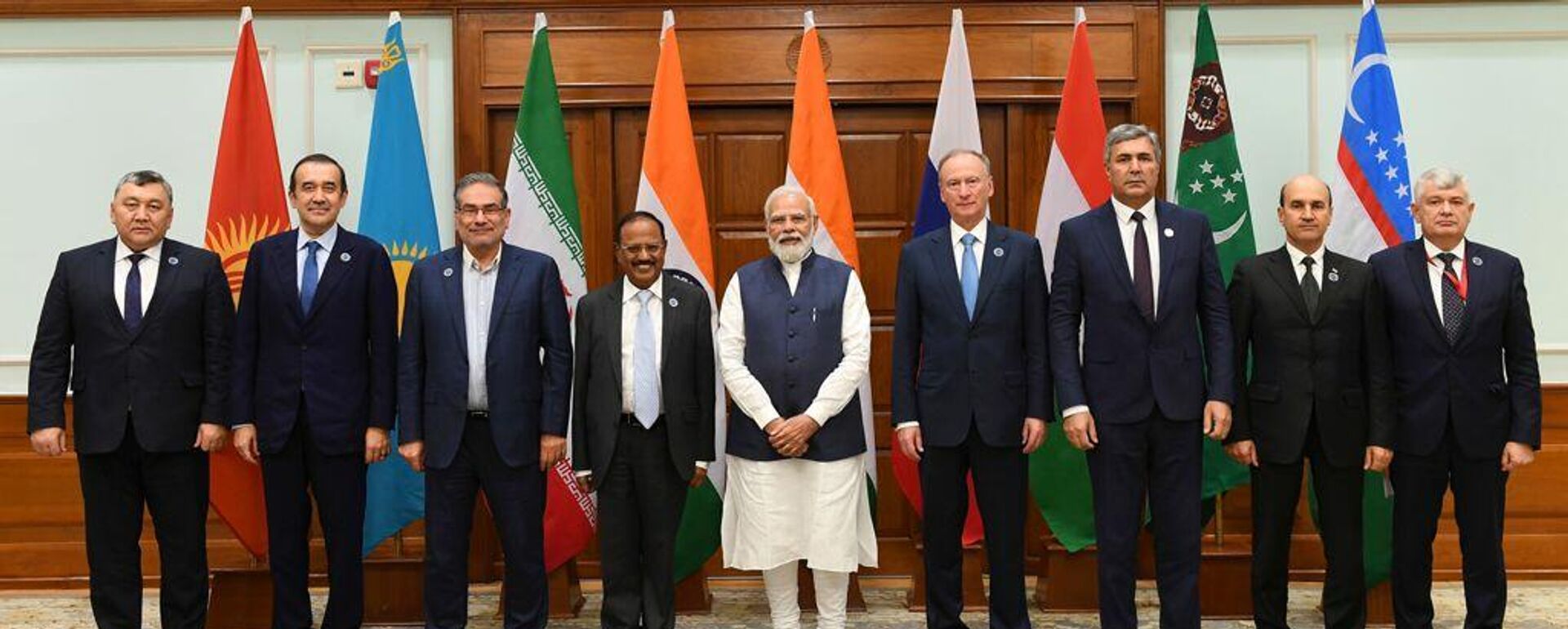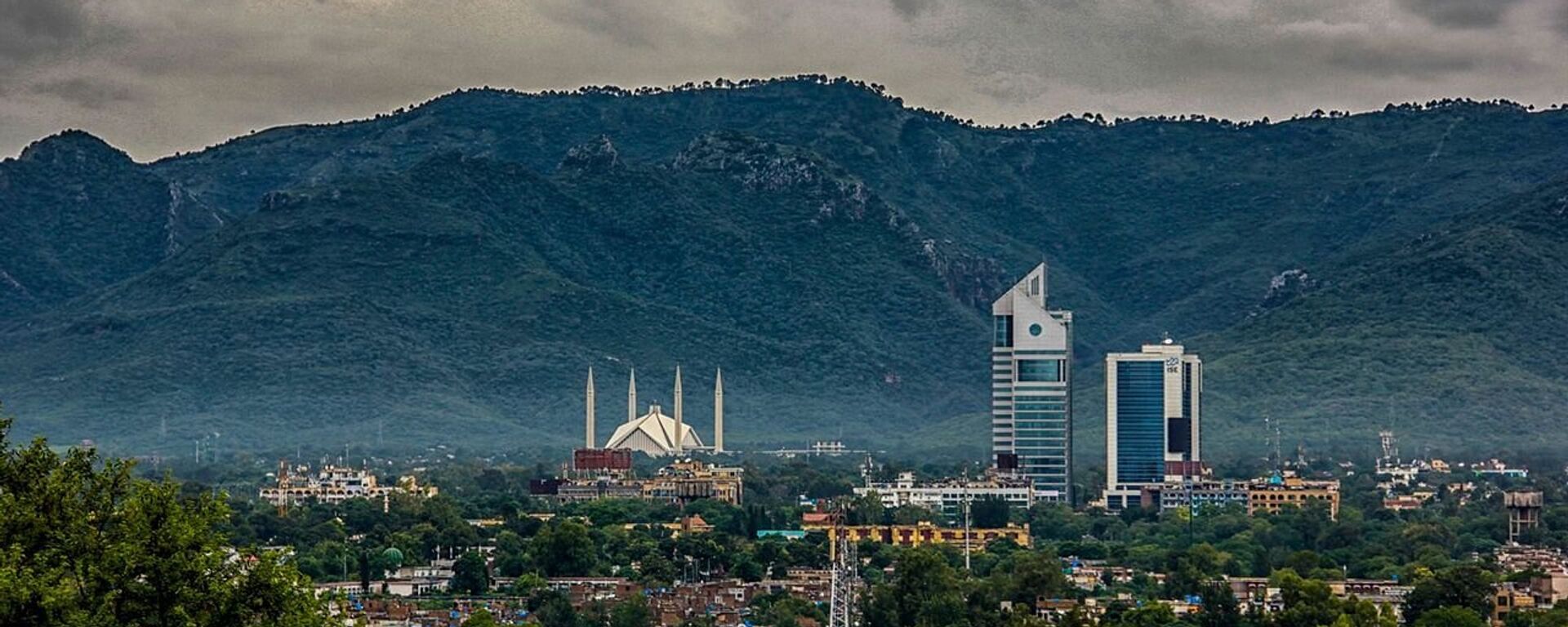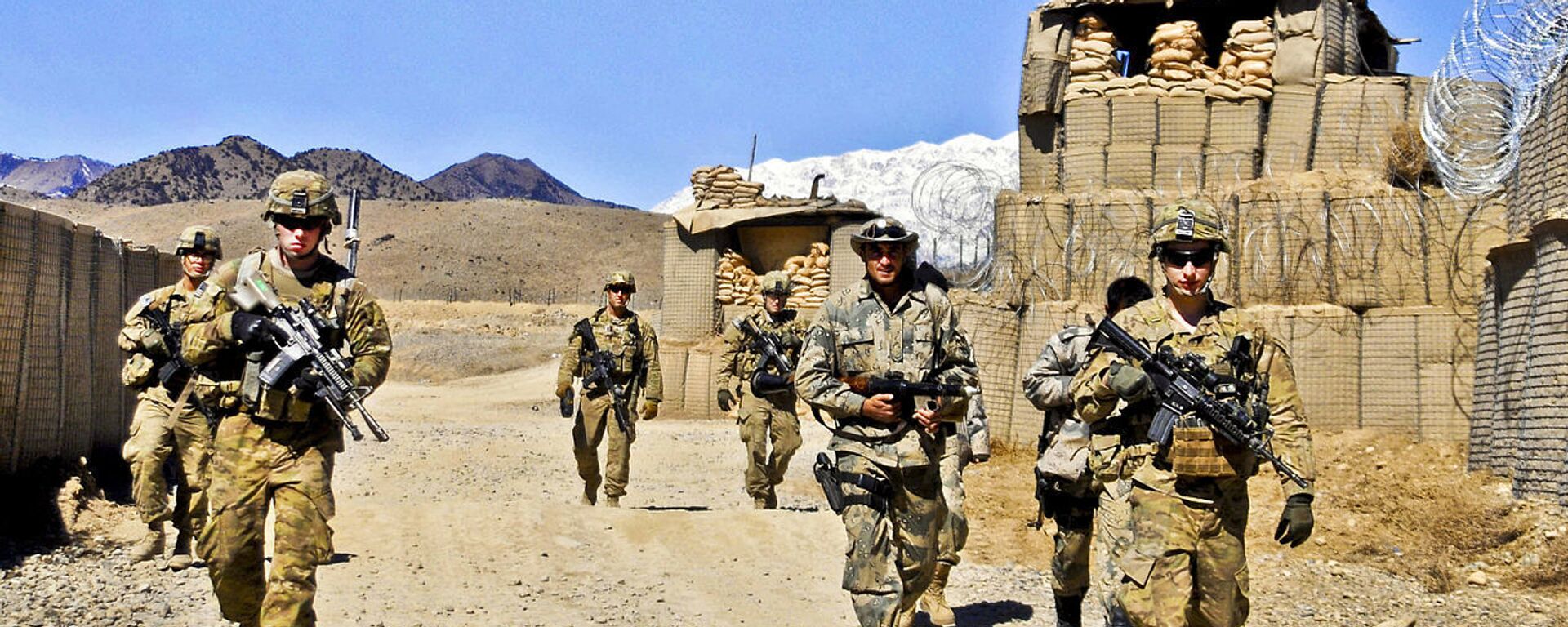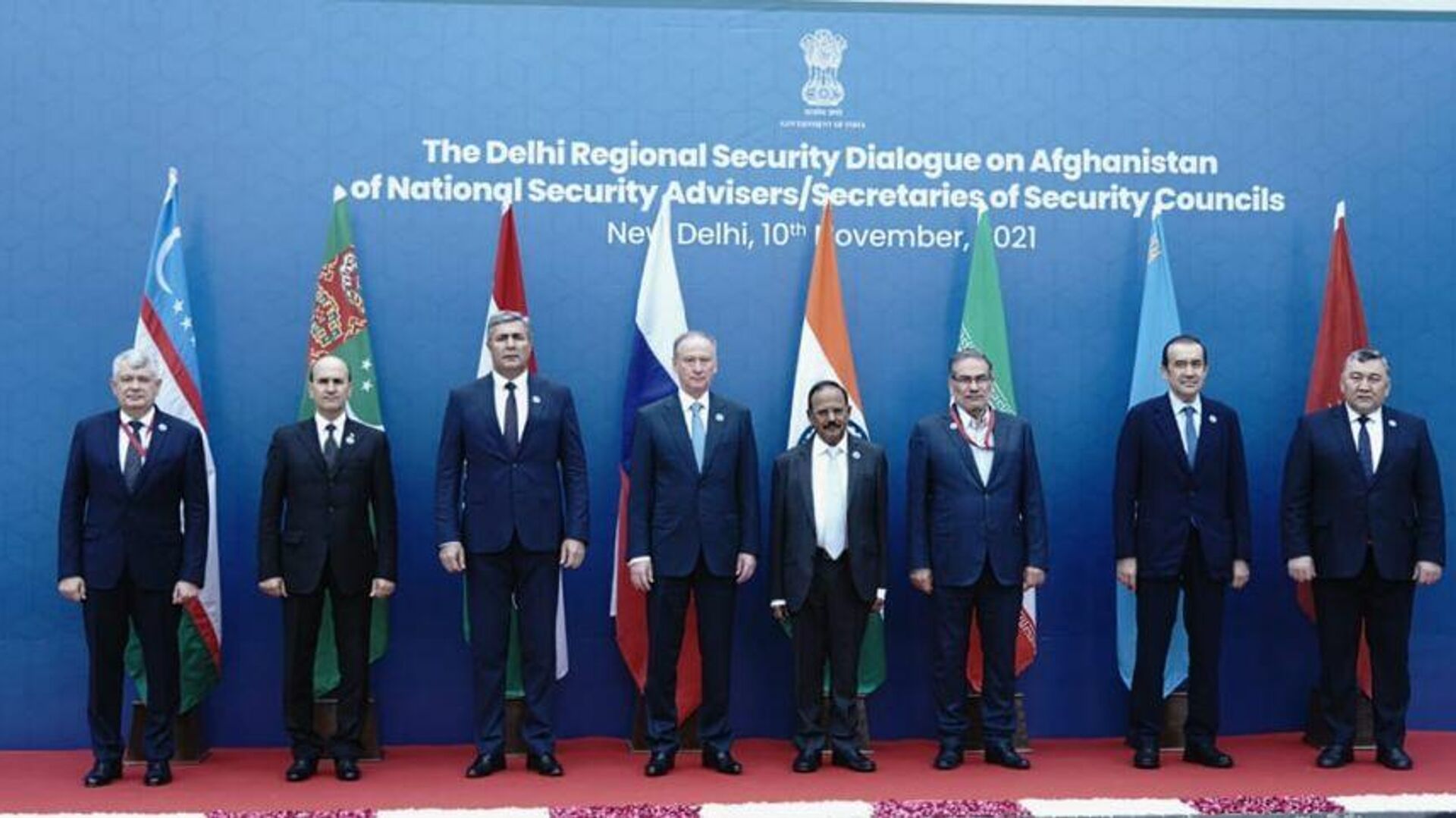https://sputnikglobe.com/20211111/india-as-of-now-has-no-role-to-play-in-afghanistan-says-strategic-analyst-1090649008.html
India 'As of Now, Has No Role to Play in Afghanistan', Says Strategic Analyst
India 'As of Now, Has No Role to Play in Afghanistan', Says Strategic Analyst
Sputnik International
India was Afghanistan’s largest regional donor before the Taliban* took over the country in August, with the total aid contribution estimated at around $3.5... 11.11.2021, Sputnik International
2021-11-11T14:32+0000
2021-11-11T14:32+0000
2022-08-06T13:26+0000
afghanistan
pakistan
russia
china
afghanistan
us
https://cdn1.img.sputnikglobe.com/img/07e5/0b/0a/1090620176_83:0:940:482_1920x0_80_0_0_8ccb66c340591ee2e349fcc554170223.jpg
The "Delhi Regional Security Dialogue on Afghanistan" marked the first time that New Delhi brought together regional powers to discuss the security situation in the central Asian nation after the Taliban's takeover. However, the absence of China, Pakistan, and even the Taliban at the event raises questions on its effectiveness.According to Indian Strategic Affairs Analyst Pravin Sawhney, in order to be viewed as a reliable stakeholder in Afghanistan, India needs to improve its ties with Pakistan and China. He also feels that improving ties with the US haven't served Indian interests in Afghanistan well.In an interview with Sputnik, ex-Indian Army officer and strategic affairs analyst Sawhney talks about the Delhi Regional Security Dialogue on Afghanistan, and the "Extended Troika" conference, which was organised in Pakistan a day after the Delhi event was held on 10 November.Sputnik: How do you view the Delhi Regional Security Dialogue on Afghanistan, hosted by India recently? What are the major takeaways from the conference for you?Pravin Sawhney: As far as I am concerned, the major takeaway from the Delhi Regional Security Dialogue is a negative one. The reason for that is simple. Within hours of the Delhi Declaration, Russia issued its own statement. While the "Delhi Declaration", or the joint statement, says that the participants would hold the next meeting by 2022, the Russian statement completely misses that point. Not only that, the Russian representative issued a statement that multiple dialogues shouldn’t complicate the situation.In other words, the growing fissures between India and Russia, as far as regional geopolitics is concerned, are out in the open. In my assessment, New Delhi’s idea of holding a regional conference was a perception management exercise for the people of India. It was meant to send out a message that India is still an important stakeholder in Afghanistan.Sputnik: Do you feel that Pakistan has gained an upper hand over India as far as the regional security situation is concerned?Sawhney: The "Extended Troika" conference that is taking place today in Islamabad will have three major geostrategic players participating in it. Geostrategic basically means a country that has the ability to influence foreign policy of other nations, way beyond its borders. The US, Russia, and China are participating and the Afghan Taliban will also be present at the conference. Out of these four, only Russia was present at the Indian conference and even they decided to express their own views.Both Afghanistan and China have now provided humanitarian aid in Afghanistan. They are just withholding the recognition of the country for a simple reason—that they want everybody (other global and regional powers) to be onboard.The Taliban government has already given a commitment that they won’t allow the use of their territory by terrorist groups targeting other nations. The joint statement after yesterday’s (10 November) meeting also expressed concerns about possible terrorism from Afghan territory. There was nothing new in that.Sputnik: Are good ties between the Taliban and Pakistan a threat for India, as far as terrorism is concerned?Sawhney: I don’t see the Taliban-Pakistan nexus posing anymore of a threat to India than what has already been expressed or known. But the threat that is posed is very substantive.Besides Pakistan, China, Russia, and to an extent even the US have a lot of stakes in ensuring that Afghanistan remains stable and secure. As far as the Central Asian Republics (CAR) are concerned, they are basically weightless, be it militarily or geopolitically. The central Asian states will listen to everybody and try to extract something for themselves from every major regional power at such conferences.Sputnik: How do you feel about the India-US ties? Are warm ties between India and the US paying dividends for India, as far as its standing in the region is concerned? Is being seen close to the US affecting India’s image regionally?Sawhney: India is on the wrong side of history. America is a very important country. We need good relations with the US. But the Indian government must realise that peace and prosperity must first come in the immediate neighbourhood. If our neighbourhood is not at peace with us, the Americans can do nothing for us.There are practical reasons why India must be at peace with China. While India has linked its overall bilateral relations to the situation at the border and demanded that it wants the status quo at the Ladakh border (pre-April 2020) to be restored, I can guarantee you that it will never happen.It is completely out of the question that the Indian territory that China has taken from us will be given back now.We don’t have any land connectivity with Afghanistan. The only land route is through Pakistan, but we don’t have good ties with Islamabad. Such is the current state of ties between India and Pakistan that Islamabad isn’t even allowing Indian flights to use their airspace.This is as big a challenge for the Americans, as it is for us. But for us, that rise of China means an entirely different thing due to the geographical proximity.Sputnik: How do you suggest India should go about managing its ties with China now, given that it's affecting New Delhi’s foreign policy elsewhere, including in Afghanistan?Sawhney: India needs to call for a dialogue with China. I suggest New Delhi could try and initiate a dialogue towards holding an informal summit with the Chinese leadership, like we did in the case of the Wuhan "Informal Summit" of 2018.*An organisation under UN sanctions for terrorist activities.
https://sputnikglobe.com/20211110/delhi-regional-security-dialogue-countries-stress-the-need-to-form-inclusive-govt-in-afghanistan-1090612422.html
https://sputnikglobe.com/20211110/pakistan-to-hold-extended-troika-meeting-after-indias-summit-on-afghanistan-invites-taliban-1090615355.html
https://sputnikglobe.com/20210904/india-us-closely-watching-pakistans-actions-in-afghanistan-says-indian-foreign-secretary-1083794137.html
pakistan
china
afghanistan
Sputnik International
feedback@sputniknews.com
+74956456601
MIA „Rosiya Segodnya“
2021
News
en_EN
Sputnik International
feedback@sputniknews.com
+74956456601
MIA „Rosiya Segodnya“
Sputnik International
feedback@sputniknews.com
+74956456601
MIA „Rosiya Segodnya“
pakistan, china, afghanistan, us
pakistan, china, afghanistan, us
India 'As of Now, Has No Role to Play in Afghanistan', Says Strategic Analyst
14:32 GMT 11.11.2021 (Updated: 13:26 GMT 06.08.2022) India was Afghanistan’s largest regional donor before the Taliban* took over the country in August, with the total aid contribution estimated at around $3.5 billion. After the takeover, India all but ended its diplomatic presence there, evacuating the majority of the Indian-origin communities amid fear about their security under the Islamist group.
The "Delhi Regional Security Dialogue on Afghanistan" marked the first time that New Delhi brought together regional powers to discuss the security situation in the central Asian nation after the Taliban's takeover.
However, the absence of China, Pakistan, and even the Taliban at the event raises questions on its effectiveness.
According to Indian Strategic Affairs Analyst Pravin Sawhney, in order to be viewed as a reliable stakeholder in Afghanistan, India needs to improve its ties with Pakistan and China. He also feels that improving ties with the US haven't served Indian interests in Afghanistan well.
In an interview with Sputnik, ex-Indian Army officer and strategic affairs analyst Sawhney talks about the Delhi Regional Security Dialogue on Afghanistan, and the "Extended Troika" conference, which was organised in Pakistan a day after the Delhi event was held on 10 November.
Sputnik: How do you view the Delhi Regional Security Dialogue on Afghanistan, hosted by India recently? What are the major takeaways from the conference for you?
Pravin Sawhney: As far as I am concerned, the major takeaway from the
Delhi Regional Security Dialogue is a negative one.
The reason for that is simple. Within hours of the Delhi Declaration, Russia issued its own statement. While the "Delhi Declaration", or the joint statement, says that the participants would hold the next meeting by 2022, the
Russian statement completely misses that point.
Not only that, the Russian representative issued a statement that multiple dialogues shouldn’t complicate the situation.

10 November 2021, 11:56 GMT
In other words, the growing fissures between India and Russia, as far as regional geopolitics is concerned, are out in the open.
In my assessment, New Delhi’s idea of holding a regional conference was a perception management exercise for the people of India. It was meant to send out a message that India is still an important stakeholder in Afghanistan.
Sputnik: Do you feel that Pakistan has gained an upper hand over India as far as the regional security situation is concerned?
Sawhney: The "Extended Troika" conference that is taking place today in Islamabad will have three major geostrategic players participating in it.
Geostrategic basically means a country that has the ability to influence foreign policy of other nations, way beyond its borders.
The US, Russia, and
China are participating and the Afghan Taliban will also be present at the conference. Out of these four, only Russia was present at the Indian conference and even they decided to express their own views.
It is not simply about Afghanistan where the India-Pakistan ties come into focus. It is about a sense of timing in history. The Pakistanis were smart enough to realise the importance of the China-Pakistan Economic Corridor (CPEC). They realised the importance of regional connectivity as a geopolitical tool to enhance their stature. So, the overall success of Pakistan not only lies in terms of security, but in the sphere of overall connectivity.
Both Afghanistan and China have now provided humanitarian aid in Afghanistan. They are just withholding the recognition of the country for a simple reason—that they want everybody (other global and regional powers) to be onboard.

10 November 2021, 14:18 GMT
The Taliban government has already given a commitment that they won’t allow the use of their territory by terrorist groups targeting other nations.
The joint statement after yesterday’s (10 November) meeting also expressed concerns about possible terrorism from Afghan territory. There was nothing new in that.
Sputnik: Are good ties between the Taliban and Pakistan a threat for India, as far as terrorism is concerned?
Sawhney: I don’t see the Taliban-Pakistan nexus posing anymore of a threat to India than what has already been expressed or known. But the threat that is posed is very substantive.
Besides Pakistan, China, Russia, and to an extent even the US have a lot of stakes in ensuring that Afghanistan remains stable and secure. As far as the Central Asian Republics (CAR) are concerned, they are basically weightless, be it militarily or geopolitically. The central Asian states will listen to everybody and try to extract something for themselves from every major regional power at such conferences.
The key players weren’t in New Delhi and all of them are present at the conference hosted by Pakistan. So, India has also got the timing in holding the conference grossly wrong.
Sputnik: How do you feel about the India-US ties? Are warm ties between India and the US paying dividends for India, as far as its standing in the region is concerned? Is being seen close to the US affecting India’s image regionally? Sawhney: India is on the wrong side of history. America is a very important country. We need good relations with the
US.
But the Indian government must realise that peace and prosperity must first come in the immediate neighbourhood. If our neighbourhood is not at peace with us, the Americans can do nothing for us.
I say that we are on the wrong side of history because China has now emerged as a fierce competitor to the US. There are reasons why China did what it did to us in Ladakh. And again, there are reasons why China still wants peace with India, despite all its aggression at the border.
There are practical reasons why India must be at peace with China.
While India has linked its overall bilateral relations to the situation at the border and demanded that it wants the status quo at the
Ladakh border (pre-April 2020) to be restored, I can guarantee you that it will never happen.

4 September 2021, 07:35 GMT
It is completely out of the question that the Indian territory that China has taken from us will be given back now.
The point here is that India, as of now, has no role to play in Afghanistan. The sum of nearly $3.5 billion that India has spent in Afghanistan over the last decade in various regional development and infrastructure projects is not going to pay us any political dividends. Having said that, the Taliban is not going to destroy what India has created in Afghanistan.
We don’t have any land connectivity with Afghanistan. The only land route is through Pakistan, but we don’t have good ties with Islamabad.
Such is the current state of ties between India and Pakistan that Islamabad isn’t even allowing Indian flights to use their airspace.
Prime Minister Narendra Modi’s government must get shed off the thinking about terrorism emanating from Pakistan posing the biggest threat to India. New Delhi must rise up to the new challenges. The single biggest challenge that we have to come to terms with is that China is now a risen power.
This is as big a challenge for the Americans, as it is for us. But for us, that rise of China means an entirely different thing due to the geographical proximity.
Sputnik: How do you suggest India should go about managing its ties with China now, given that it's affecting New Delhi’s foreign policy elsewhere, including in Afghanistan?
Sawhney: India needs to call for a dialogue with China. I suggest New Delhi could try and initiate a dialogue towards holding an informal summit with the Chinese leadership, like we did in the case of the Wuhan "Informal Summit" of 2018.
*An organisation under UN sanctions for terrorist activities.







